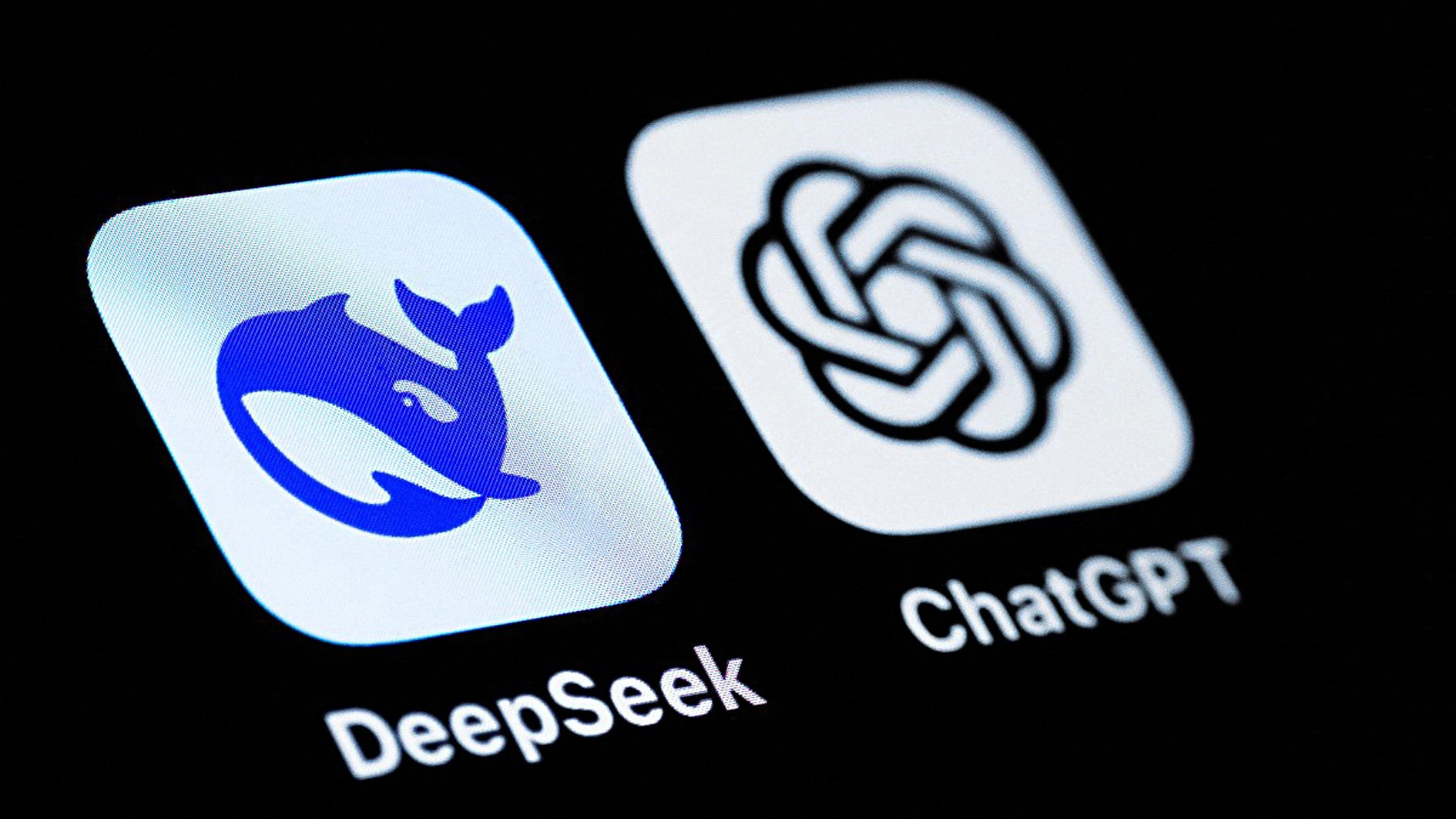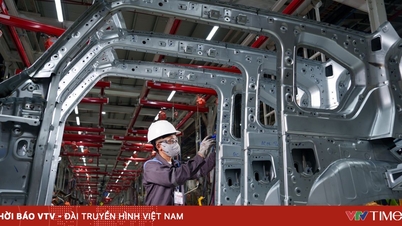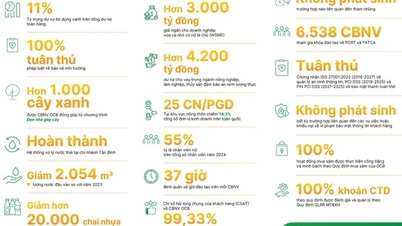Experts say the US has helped China succeed in developing artificial intelligence (AI) at low cost, as Washington has restricted Beijing’s access to advanced but expensive chips.

Logo of AI chatbot application DeepSeek (China) next to ChatGPT application (US) on smartphone screen - Photo: AFP
While US tech giants are claiming to spend hundreds of billions of dollars to develop the most advanced AI models, Chinese start-up DeepSeek proves the opposite: it only takes a few million dollars.
Necessity is the mother of invention
"When ChatGPT launched in November 2022, the US was still leading in generative AI. However, over the past two years, this gap has gradually been erased," Professor Andrew Ng, one of the 100 most influential people in global AI in 2023, shared with the South China Morning Post (SCMP).
He made this comment in the context of DeepSeek, a Chinese AI start-up, causing a surprise when it launched a free AI model comparable to ChatGPT in January 2025.
According to Mr. Ng, with the emergence of models such as Qwen, Kimi, InternVL and DeepSeek, China has not only narrowed the gap but also gradually taken the lead in some areas of AI. China Daily emphasized that DeepSeek uses open source code to develop AI tools, allowing for widespread collaboration and experimentation, promoting faster breakthroughs in the industry.
Compared to US AI technology corporations, DeepSeek has a publicly disclosed development cost of less than $6 million. This challenges the argument that it takes billions of dollars to train AI, as US companies often claim.
Despite Washington’s ban limiting access to cutting-edge chips, DeepSeek proves that the AI industry doesn’t have to rely on giants like Nvidia. China’s chatbot only needed about 2,000 low-stakes chips to develop, while Meta’s latest Llama 3.1 AI model required 16,000 of Nvidia’s cutting-edge H100 chips.
Shortly after its release, DeepSeek’s chatbot quickly rose to the top of Apple’s App Store rankings, surpassing ChatGPT. On January 20, DeepSeek released its open-source model R1, which is considered to have features equivalent to the closed-source model ChatGPT. Notably, OpenAI CEO Sam Altman also praised DeepSeek’s approach.
Does it take a lot of money to develop AI?
On February 3, the Independent newspaper reported that a US research team had recreated DeepSeek’s AI chatbot for just a few dozen dollars, reinforcing the trend of low-cost AI development. A research team at the University of California, Berkeley, claimed to have copied DeepSeek’s R1 model for less than $30.
“We have replicated DeepSeek R1-Zero in the CountDown game and it works well,” PhD student Jiayi Pan shared on the X platform. Pan hopes this project will make AI more accessible.
The success of DeepSeek and Mr. Pan's team's project shows that the cost of training AI can be much lower than the hundreds of billions of dollars that American technology corporations claim.
Tech experts say DeepSeek could have a profound impact on how AI is built and used in the future. Yann LeCun, an AI scientist at Meta Platforms, argues that DeepSeek shouldn’t be interpreted as “China is surpassing the US in AI.” Instead, he says the correct way to phrase it is “Open-source models are surpassing proprietary models,” according to an article on SCMP.
DeepSeek changes approach, not 'game changer'
Mr. Dang Huu Son - Deputy Director of the Institute for Applied Technology Research and Human Resource Development, co-founder and CEO of LovinBot AI - commented: DeepSeek is unlikely to become a "game changer" in the AI field in the long term.
According to Mr. Son, DeepSeek has successfully completed the most important task: changing the approach of investors and businesses on the trend of "popularizing" AI technology - towards low cost and easy access. However, in the long term, they will face great challenges in investment costs and fierce competition to maintain model quality.
The launch of DeepSeek - a low-cost, low-resource, open-source AI model - has attracted attention, forcing American AI giants to reconsider their strategies. This case is similar to Temu, choosing a low-cost strategy to compete.
However, experts say DeepSeek does not really outperform other high-end models in performance and has limitations in handling complex tasks.
One unique feature of DeepSeek is that it allows users to see the “thought process” as it makes inferences. However, this opens up serious security vulnerabilities. Experts have pointed out that DeepSeek is vulnerable to a variety of attacks, from simple language manipulation to complex “prompts” generated by the AI itself.
Furthermore, cost optimization forced DeepSeek to cut back on some protection mechanisms. This left the system vulnerable to sophisticated tactics, leading to the risk of returning unwanted information or manipulating behavior.
In Vietnam, lessons from DeepSeek open up opportunities for developing AI at reasonable prices while still ensuring safety. LovinBot AI is currently researching but has not yet integrated DeepSeek, despite its low cost and open source code, because the most important requirement is still information security and avoiding the risk of content manipulation.
Source: https://tuoitre.vn/trung-quoc-pha-gia-ai-20250205001728107.htm



![[Photo] Prime Minister Pham Minh Chinh chairs a meeting of the Government Standing Committee to remove obstacles for projects.](https://vphoto.vietnam.vn/thumb/1200x675/vietnam/resource/IMAGE/2025/10/06/1759768638313_dsc-9023-jpg.webp)



![[Photo] Prime Minister Pham Minh Chinh chaired a meeting of the Steering Committee on the arrangement of public service units under ministries, branches and localities.](https://vphoto.vietnam.vn/thumb/1200x675/vietnam/resource/IMAGE/2025/10/06/1759767137532_dsc-8743-jpg.webp)




























































































Comment (0)